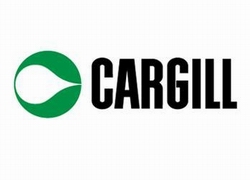 Giant U.S. food and grain-handling companies ConAgra Foods Inc, Cargill and CHS Inc plan to combine their North American flour milling businesses into a new venture that would control more than a third of U.S. capacity, dwarfing all competitors in size and market reach.
Giant U.S. food and grain-handling companies ConAgra Foods Inc, Cargill and CHS Inc plan to combine their North American flour milling businesses into a new venture that would control more than a third of U.S. capacity, dwarfing all competitors in size and market reach.Dubbed Ardent Mills, the operation would encompass 44 flour mills with locations from California to Massachusetts as well as bakery mix and specialty bakery facilities, with footholds in Canada and Puerto Rico.
News of the plan caught many in the industry by surprise, although officials said they have been in discussions about a combination for well over a year, and prompted instant speculation that U.S. officials might push back due to antitrust concerns.
The venture would control roughly 34 percent of the U.S. market in terms of milling capacity, with total daily wheat and durum flour capacity for the combined company around 576,100 hundredweight (cwt).
Ardent marries ConAgra Mills with Horizon Milling, the joint venture that Cargill and CHS formed in 2002. Horizon is considered the No. 1 U.S. miller in terms of milling capacity which is 290,500 cwt per day. ConAgra is third now, behind No. 2 ADM Milling, with 255,100 cwt per day. Horizon brings 21 U.S. and Canadian flour mills to the deal, and ConAgra adds 23 U.S. flour mills.
If antitrust concerns do develop, the government could require some sort of asset divestitures. But Cargill Corporate Vice President Scott Portnoy said in an interview that the "complete asset footprint" of combined operations was a key reason for the deal. He said Ardent did not want to close or sell off any of the mills, even as some market watchers raised questions about anti-trust issues.
"It is our anticipation that all the mills... are necessary in order to provide the kinds of options that our customers expect both in terms of specialized types of wheat and specialty types of flour solutions as well as actually just efficient supply chain access," said Portnoy, adding the partners were not going to speculate on the government's response.
"We're going to work closely with the government if they have questions. But we really believe in the merits of this transaction," Portnoy said. "We are going to work very hard to get this transaction done."

BROAD BASE
ConAgra and Horizon's milling operations last year did roughly $4.3 billion in combined sales, and officials see additional growth opportunities, potentially acquiring more assets, said Portnoy.
Analysts noted the efficiencies created would make the partnership far more competitive globally.
"Any kind of consolidation in agribusiness which increases efficiency in terms of the competitiveness that this new entity will offer on the global market, is always welcome," said Rich Feltes, vice president for research at R.J. O'Brien. "This is good for U.S. agricultural competitiveness in the global flour market."
But some farmer groups expressed concerns that more consolidation in the market could ultimately spell lower wheat prices as fewer competitors bid for supply.
The milling company partners said their broader base would help them better manage sometimes volatile swings in wheat prices. But they said that farmers will benefit through enhanced opportunities to connect the wheat they grow to the consumer marketplace.
CHS, the nation's largest producer-owned cooperative, will be a key supplier to Ardent, said Mark Palmquist, executive vice president and chief operating officer of Ag Business, CHS.
The combined operations will improve research and development for more nutritious and tasty products, as innovation becomes more critical for consumer food products, company officials said. Details about how research and development work will be combined are yet to be worked out.
Omaha, Nebraska-based ConAgra and Minneapolis-based Cargill, will each have a 44 percent stake in the joint venture. CHS, based in St. Paul, Minnesota, will control the remaining 12 percent. All three companies will have representatives on the Ardent board. The partners hope to launch the new company later this year.
Horizon Milling President Dan Dye will become chief executive officer of the new company, and Bill Stoufer, current president of ConAgra Mills, will become Ardent Mills' chief operating officer and chief integration officer. The headquarters will be determined later, the companies said.
Each partner will contribute their respective milling operations to Ardent Mills on a cash-free, debt-free basis in exchange for the agreed ownership interests.
Sales for ConAgra Mills, currently part of ConAgra Foods' commercial foods segment, were roughly $1.8 billion for the fiscal year that ended May 27, 2012. Sales for Horizon Milling were about $2.5 billion in its fiscal year that ended May 31, 2012.
Ardent Mills will be self-financed through cash flow from operations and its own bank debt and credit facility, the companies said. Cash distributions from Ardent Mills will be delivered to the partners at closing, with initial estimates of the total proceeds to be distributed ranging from $800 million to $1 billion, they said.







